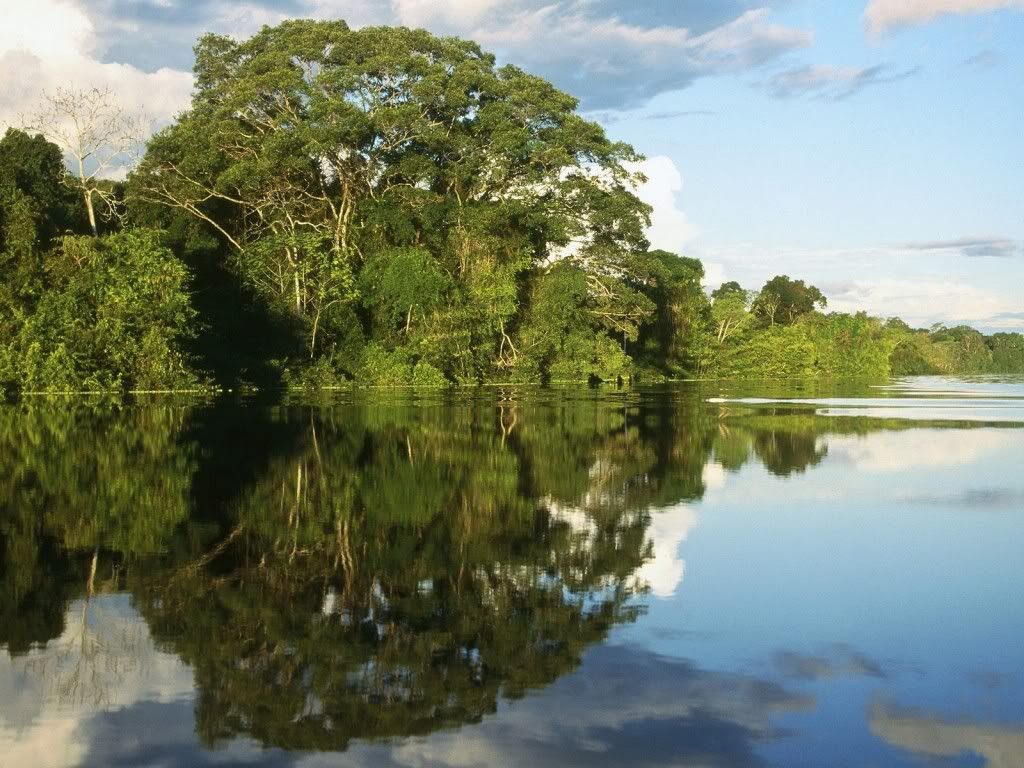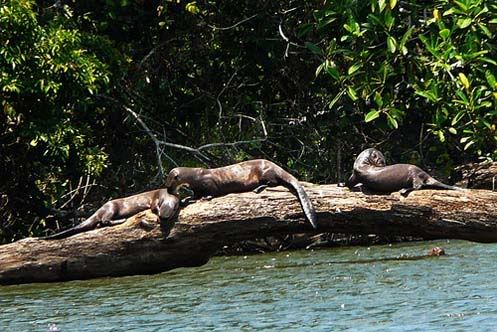An alarming increase in deforestation in Brazil just as its government has agreed to relax laws protecting the country's forests.
In the Mato Grosso area, 405.6 square kilometres of forest were destroyed in April 2011, more than in the whole of the previous year and a staggering 540 per cent increase in deforestation month on month increase, according to the National Institute for Space Studies (INPE). Worse still, under the new bill, there would be an amnesty for those who illegally cleared forest before July 2008.
Supporters of the new law say Brazil needs land to boost agricultural production, while environmentalists say destruction of the Amazon rainforest will increase. It is not gaining full support, with Brazilian President Dilma Rousseff indicated she would veto any bill that contained an amnesty.
Environment Minister Izabella Teixeira expressed concern over the latest figures, saying: ‘This is a very serious fact, atypical and contradictory. In a single month there has been more deforestation in Mato Grosso than occurred in the whole of last year.
Increase in deforestation anticipated change in law
The proposed amendment to the law by the ‘ruralistas' would make profound alterations to the law, easing restrictions on farmers and requirements about how much they should replant. The changes were proposed by Aldo Rebelo form Brazil's Communist Party (PCdoB), who argued that the existing rules prevented small farmers from making best use of their land to lift themselves out of poverty and supported by groups representing farmers' interests.
Brazil's Forest Law (also known as the Forest Code) was first enacted in 1934 and determines how much a landowner can deforest and how much must be kept as a ‘legal reserve'. Before this month's decision, Brazil's Forest Law requires landowners in the Amazon to allow 80 per cent of a property to remain forested but in the tropical savannah region this falls to just 20 per cent. The final terms of the amended bill are still being debated.
The increase in deforestation is happening in regions where Mato Grosso's agribusiness is expanding, and is thought to be directly linked to the expectation that the amendment to the Forest Law will be approved.
Cleared to make way for soya production
Rainforest is being replaced by lucrative soya fields according to WWF-Brazil's Conservation Director Carlos Alberto de Mattos Scaramuzza: ‘The numbers reflect confidence in the promise made by the "ruralista" faction (representing agribusiness interests) in parliament that there will be a general amnesty for all illegal deforestation brought about by agribusiness.'
Much of the deforestation has been in the soya-growing region of Sinop, driven by spiraling market prices. On average, the profitability of soya is somewhere between 300 and 500 reais (£115 and £190) a hectare. But at the moment that has escalated to 1,000 reais (£380) a hectare, making it extraordinarily lucrative.
‘That assurance of extremely high profits associated with the expectation of generalised impunity as a consequence of the Forest Law amendment, has contributed immensely to stimulating the criminal deforestation we are witnessing in Mato Grosso today,' Scaramuzza said.
Mato Grosso - which translates to ‘Thick Wood' - is home to some of the most biodiverse swathes of rainforest in the country.
mountains amazon river, river amazon information,the amazon river pictures, amazon river explorers, mountains amazon
Đăng ký:
Đăng Nhận xét (Atom)
new post
-
José Cláudio Ribeiro da Silva speaking at TEDx Amazon in 2010 José Cláudio Ribeiro da Silva and his wife, Maria do Espírito Santo da Si...
-
Source: The Spoof Scientists have discovered a remote tribe in the Brazilian rainforest who have no word to describe the male genitalia....
-
Posted by Asker at 9:52 AM Friday, December 3, 2010 Labels: Blogger , Templates , Themes , Tutorials 2 comments The purpose ...
-
The Amazon River is the largest and longer river in the world; it's also the main artery of the whole Amazon rainforest system and washe...



Không có nhận xét nào:
Đăng nhận xét